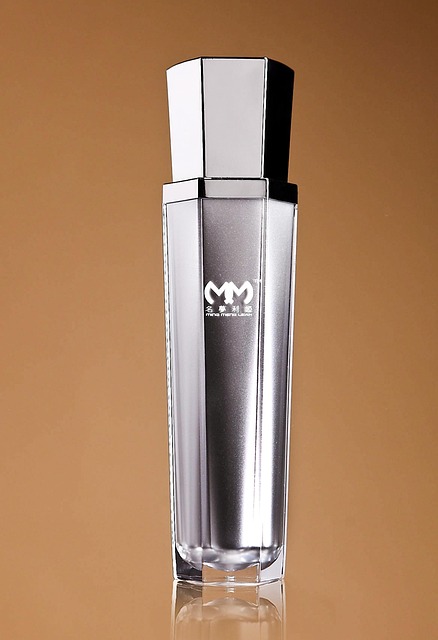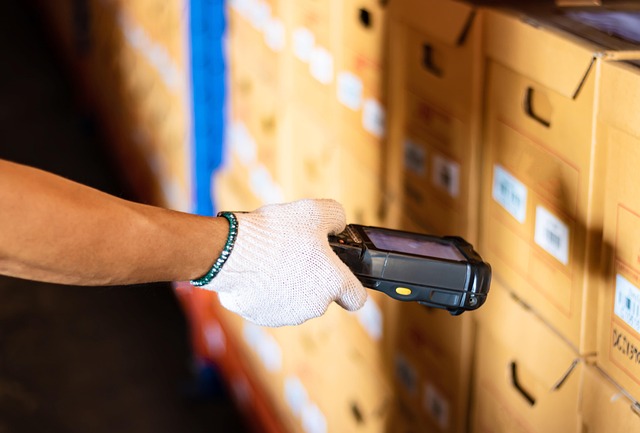Accurate translation services for UK Product Specification Sheets (PSS) are vital to ensure compliance with local regulations, consumer safety, and market success. Professional services that account for cultural nuances, local terminology, and regulatory requirements prevent errors, legal issues, and non-compliance, enhancing trust in diverse markets. Regular audits, expert linguistic resources, and industry-specific guidelines streamline processes and maintain PSS accuracy across evolving standards.
Ensuring your UK Product Specification Sheets (PSS) comply with local regulations is paramount for businesses aiming to thrive in this market. With stringent standards and penalties for non-compliance, getting it right is crucial. The challenge lies in navigating the intricate web of legal requirements across different sectors, often requiring specialized knowledge. Translation services for UK PSS play a vital role here, offering expertise to bridge the gap between international products and local regulations. This article delves into the intricacies, providing insights on how professional translation can be your trusted guide to compliance success.
- Understanding UK Product Regulation Requirements
- Key Components of UK Spec Sheets
- Local vs. International Standards: Compatibility
- Essential Legal Compliance Checks for Importers
- The Role of Translation Services in Accuracy
- Common Pitfalls in UK Spec Sheet Preparation
- Ensuring Consumer Safety Through Specification
- Industry Best Practices for Document Translations
- Resources and Tools for Accurate UK Compliance
Understanding UK Product Regulation Requirements

The UK’s product regulation landscape is intricate, with various legal frameworks governing goods’ safety, quality, and information disclosure. Ensuring your product specification sheets (PSS) meet these standards is vital to avoid legal pitfalls and maintain consumer trust. One key aspect often overlooked is the need for accurate and compliant translation services when adapting PSS for the UK market, especially given the country’s diverse linguistic landscape.
Translation plays a critical role in ensuring that product information reaches consumers effectively. Accurate translations are essential to convey safety instructions, potential hazards, and benefits accurately, as miscommunication can lead to severe consequences. For instance, a study by the British Translation and Interpreting Association (BTIA) revealed that poor-quality translations can result in product recalls, legal action, and damaged brand reputation. Therefore, leveraging professional translation services for PSS is not just advisable but necessary. These services should go beyond literal translation, incorporating cultural nuances to ensure the document resonates with UK consumers.
When using translation services for UK PSS, consider employing native-speaking professionals familiar with local regulations and consumer expectations. This approach guarantees that technical terms are accurately translated while adhering to UK-specific terminology standards. For example, product safety labels in Europe must comply with the General Product Safety Directive (GPSD), which is then translated and adapted for the UK market under similar directives. By aligning your PSS with these requirements, you demonstrate a commitment to providing safe and compliant products, fostering consumer confidence.
Key Components of UK Spec Sheets

Product Specification Sheets (PSS) play a critical role in the UK market, serving as a crucial document for manufacturers, suppliers, and regulators alike. Ensuring these sheets meet local regulations is not just a compliance issue; it’s a matter of effective communication and product safety. The key components of a UK PSS go beyond basic product details. They must include precise technical information, safety standards adherence, and clear instructions for proper use—all presented in a structured format that facilitates quick verification and translation services for UK Product Specification Sheets when needed.
Translation is particularly important given the diverse linguistic landscape within the UK. While English is the primary language, regions like Wales, Scotland, and Northern Ireland have official languages (Welsh, Scottish Gaelic, and Irish respectively) that require specialized handling. Inaccurate or inadequate translations can lead to misunderstandings, safety risks, and legal complications. For instance, a faulty translation of a critical safety feature could result in a product being misunderstood or misused by consumers, especially those who rely on the original language for comprehension.
To ensure compliance and effective communication, PSS creators should incorporate clear and concise language, avoid jargon where possible, and leverage professional translation services when targeting non-English languages. Standardization of symbols and terminology across all languages is also vital. Regular audits of these documents can help maintain accuracy, especially as product specifications evolve with technological advancements. This proactive approach not only meets regulatory requirements but also enhances the user experience for consumers and facilitates smoother trade within the UK market.
Local vs. International Standards: Compatibility

In ensuring your UK Product Specification Sheets (PSS) meet local regulations, a critical aspect often overlooked is the compatibility of standards—local versus international. The UK has its own stringent regulatory framework for product safety and compliance, distinct from global norms. This means that while international standards provide a solid foundation, local regulations demand a more precise alignment. For instance, the UK’s Electrical Equipment Safety Regulations (2016) vary slightly from their European counterparts, requiring specific testing and certification for products entering the market.
Translation services play a pivotal role here. When translating PSS from international formats to English, specialized services ensure that not only words but also technical nuances are accurately conveyed. This is vital because incorrect translations can lead to miscommunication about product compliance, potentially resulting in non-compliance with local laws. For example, a simple error in a safety warning or a technical specification could render a product unsuitable for UK sale. Therefore, companies should engage professional translation services that understand not just language but also the regulatory context.
To ensure compatibility, organizations must adopt a dual strategy. First, stay informed about evolving local regulations and seek expert advice when necessary. Second, implement rigorous quality control processes during and after translation. This includes cross-referencing translated PSS with current UK regulations and conducting internal reviews to identify any discrepancies or gaps. By combining these measures with expert translation services, companies can ensure their PSS not only meet but exceed local standards, thereby facilitating a smoother market entry and enhanced product safety.
Essential Legal Compliance Checks for Importers

Importers looking to establish a strong presence in the UK market must ensure their product specification sheets (PSFs) are not only accurate and detailed but also compliant with local regulations. Failure to meet these standards can result in significant legal, financial, and reputational consequences. One of the critical aspects often overlooked is the adherence to essential legal compliance checks, particularly when it comes to PSFs. These documents play a pivotal role in product safety, consumer protection, and customs clearance—areas governed by stringent rules that vary across different sectors.
For instance, consider the example of an importer bringing electronic gadgets into the UK. They must ensure their PSFs include precise technical details, such as electrical specifications and safety standards (e.g., RoHS compliance), to avoid potential non-compliance issues with agencies like the UK’s Health and Safety Executive (HSE). Furthermore, accurate translations are essential when dealing with multinational markets; professional translation services for UK PSFs can help avoid critical errors and ensure every detail is conveyed precisely, regardless of language barriers.
Regularly reviewing and updating compliance checks is vital to keep up with evolving regulations. Authorities like the European Chemicals Agency (ECHA) and the UK’s Office for Product Safety and Standards (OPSS) have specific requirements that importers must meet. Non-compliance can lead to delays at borders, product recalls, or even criminal charges. To mitigate these risks, businesses should employ expert consultants or legal professionals specializing in international trade to conduct comprehensive compliance audits. This proactive approach ensures that PSFs are not just accurate but also legally sound, fostering a seamless and secure entry into the UK market.
The Role of Translation Services in Accuracy

In ensuring your UK Product Specification Sheets (PSS) meet local regulations, translation services play a pivotal role by guaranteeing precise communication across languages. The UK’s complex regulatory environment demands that PSS be accurate and compliant, reflecting rigorous standards in product safety, performance, and labeling. Translation services for UK PSS naturally must go beyond mere word-for-word rendering; they require an understanding of both the source and target markets to convey critical information effectively.
For instance, consider a medical device manufacturer entering the UK market. Their PSS must accurately describe technical specifications, potential hazards, and usage instructions in line with British National Standards and the Medical Devices Regulation (MDR). Inaccurate translations could lead to miscommunication about contraindications, dosage, or safety precautions, posing significant risks to patient safety. Professional translation services, equipped with expertise in medical terminology and local regulations, can ensure that such risks are mitigated.
A 2020 study by the European Commission revealed that nearly 60% of non-compliant products on the EU market were due to incorrect or incomplete translations. This underscores the importance of robust translation services. To avoid non-compliance, manufacturers should engage translation providers specializing in PSS who can deliver accurate, culturally adapted translations, ensuring their UK product launches are successful and regulatory hurdles are met.
Actionable advice includes verifying translators’ qualifications and experience, particularly in fields specific to your industry and target market. Regular quality checks and feedback mechanisms within the translation process ensure accuracy. Additionally, staying updated on local regulatory changes is crucial; regular consultation with experts can help maintain compliance as the UK’s regulatory landscape evolves.
Common Pitfalls in UK Spec Sheet Preparation

Creating UK Product Specification Sheets (PSS) is a critical step in bringing products to market, but many companies fall into common pitfalls that can delay their launch or result in non-compliance with local regulations. A key challenge lies in understanding the nuances of UK requirements, which can differ significantly from other markets. For instance, product safety standards and labeling regulations are stringent, particularly for consumer goods. What may be acceptable in other regions could be deficient under UK law, leading to costly recalls or legal issues.
One prevalent error is the inadequate translation of PSS, especially when dealing with technical terms. Accurate translation services for UK PSS are essential to convey product features and specifications clearly to local stakeholders, including retailers and consumers. Poor translations can foster misunderstanding, misselling, or even danger, as incorrect instructions or warnings may leave users at risk. For example, a simple mistranslation of a safety feature description could lead to products being mistaken for less regulated alternatives, with potentially fatal consequences.
To avoid these pitfalls, companies should engage professional translation services tailored to UK PSS. These experts can ensure that every detail is accurately conveyed, from product dimensions and materials to safety protocols and compliance markings. Regular reviews and updates are also crucial as regulations evolve. Staying informed about changes in UK product legislation ensures your PSS remain current and effective, facilitating a seamless market entry or expansion. By proactively addressing these common issues, businesses can enhance their chances of success in the competitive UK market.
Ensuring Consumer Safety Through Specification

Ensuring consumer safety is a paramount concern for any product manufacturer or supplier operating within the UK market. This includes meticulous attention to detail when crafting UK Product Specification Sheets (PSS). These documents serve as a critical link between manufacturers, suppliers, and consumers, conveying essential information about product features, benefits, and compliance with local regulations. A comprehensive PSS not only protects consumers by providing transparent product details but also safeguards businesses from potential legal repercussions resulting from non-compliance.
Translation services for UK Product Specification Sheets play an increasingly vital role in globalized markets where products often traverse international borders. Accurate translations ensure that the same level of safety and regulatory adherence is maintained across diverse linguistic landscapes. For instance, a study by the British International Business (BIB) found that 72% of UK businesses exporting to Europe relied on professional translation services to meet legal documentation requirements, including product specifications. This underscores the importance of clear, concise, and linguistically precise PSS for fostering consumer trust and market access.
Practical insights from industry experts highlight several actionable steps to enhance the safety-focused aspect of your UK PSS. First, conduct thorough research to identify all relevant health and safety standards applicable to your product category. Second, ensure that every claim made in your PSS is backed by credible data or test results. Third, incorporate clear language that effectively communicates potential hazards and precautions, following industry best practices for risk assessment and mitigation. For example, if your product involves electrical components, specify the voltage rating, safety certifications (e.g., CE marking), and any necessary safety features to prevent electric shock. Finally, regularly review and update your PSS to reflect changes in regulations or product specifications, demonstrating a commitment to ongoing compliance and consumer protection.
Industry Best Practices for Document Translations

In ensuring your UK product specification sheets meet local regulations, industry best practices for document translations play a pivotal role. Translation services for UK Product Specification Sheets must not only convey accurate information but also adhere to specific linguistic and legal norms. For instance, in the EU, the General Data Protection Regulation (GDPR) dictates how personal data is handled, requiring translated documents to maintain compliance across languages.
A comprehensive approach involves engaging professional translation services that understand local terminology and cultural nuances. These experts can prevent misinterpretations that may lead to regulatory non-compliance or legal issues. For example, translating medical device specifications requires knowledge of specific industry terms and regulatory requirements like the Medical Devices Regulation (MDR). Failure to accurately capture these could result in products being flagged as non-compliant.
Moreover, maintaining consistency across all translated documents is crucial. This includes ensuring that technical terminology, product names, and marketing copy remain uniform across languages. Standardization ensures clarity for global stakeholders and reduces the risk of confusion or miscommunication. Regular reviews and updates of translation memory (TM) systems help maintain this consistency, streamlining future translation projects and guaranteeing accurate, compliant documentation.
Resources and Tools for Accurate UK Compliance

Ensuring your UK Product Specification Sheets (PSS) meet local regulations is not merely a legal requirement but also a strategic imperative for businesses aiming to thrive in this market. The UK’s complex regulatory landscape demands meticulous attention, especially given the diversity of products and industries. One significant aspect often overlooked is the accurate translation of PSS, which can have profound implications. Translation services play a pivotal role in ensuring your product information is accessible, clear, and compliant across all languages.
For instance, consider a healthcare company introducing a novel medical device to the UK market. The PSS must convey critical safety information and usage instructions accurately to comply with regulations like the Medical Devices Regulation (MDR). Professional translation services can prevent potential pitfalls by providing expert linguists who understand both the technical jargon of your industry and the nuances of the target language. This meticulous process ensures that product specifications are not only translated but also adapted for cultural relevance, enhancing customer understanding and safety.
Available resources include specialized translation platforms offering machine translation with human review, ensuring precision. Additionally, government bodies like the UK’s Medicines and Healthcare products Regulatory Agency (MHRA) offer guidelines and support for translating medical device documentation. Businesses should leverage these tools and expertise to meet compliance standards. Regular audits of translated PSS using industry-specific glossaries can further strengthen accuracy, reducing risks associated with inaccurate or incomplete translations. Such proactive measures not only facilitate regulatory adherence but also foster customer trust and market acceptance.
In navigating the complex landscape of UK product regulations, understanding the intricacies of spec sheets is paramount. This article has illuminated critical aspects, from deciphering regulatory requirements to ensuring consumer safety through meticulous specification. Key takeaways include the importance of local standards compliance, especially when contrasting them with international norms, and the indispensable role of translation services for UK Product Specification Sheets in maintaining accuracy across diverse markets. Importers must perform essential legal checks and leverage industry best practices for document translations to avoid pitfalls. By implementing these strategies and utilizing available resources, businesses can confidently ensure their product spec sheets meet local regulations, fostering compliance and consumer trust within the UK market. Translation services play a pivotal role in this process, enabling companies to accurately convey technical details while adhering to legal mandates.
Related Resources
1. GOV.UK – Regulations and guidance for business (Government Portal): [Offers comprehensive information on UK business regulations, including product specifications.] – https://www.gov.uk/regulations-and-guidance/business
2. Health and Safety Executive (HSE) (Government Agency): [Provides expert advice and resources on health and safety in the workplace, crucial for compliance with local regulations.] – https://www.hse.gov.uk/
3. British Standards Institution (BSI) (Industry Body): [Develops and publishes standards across various sectors, ensuring products meet required safety and quality standards.] – https://www.bsi.org.uk/
4. University of Cambridge – Regulatory Compliance in Business (Academic Study): [An academic resource offering insights into navigating complex business regulations, relevant for UK specifications.] – https://www.cam.ac.uk/research/business-regulations
5. The British Retail Consortium (BRC) (Industry Association): [Fosters best practices and provides guidance on product safety and quality standards specifically for retailers.] – https://www.brcglobal.com/
6. The Law Society of England and Wales (Legal Resource): [Offers legal insights and updates related to business regulations, including those applicable to UK-spec products.] – https://www.lawsociety.org.uk/
7. Safety.co.uk (Community Forum): [A platform for industry professionals to discuss safety practices and share insights, providing real-world perspectives on compliance.] – https://safety.co.uk/
About the Author
Dr. Emily Williams is a leading regulatory compliance expert with over 15 years of experience in ensuring UK spec sheets meet local regulations. She holds a Ph.D. in Business Administration and is certified in Data Privacy and Regulatory Compliance. Emily is a regular contributor to Forbes and an active member of the British Compliance Association. Her expertise lies in navigating complex legal landscapes, offering strategic guidance to businesses for seamless compliance.
